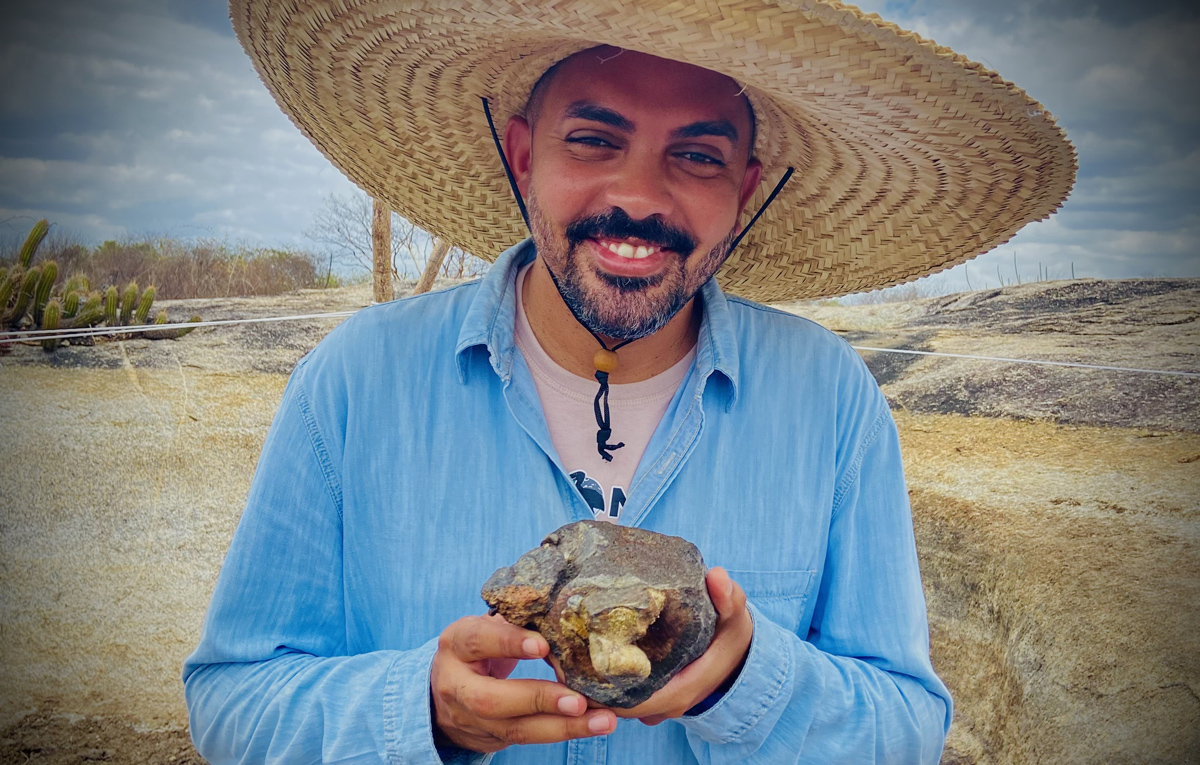When Hermínio Ismael de Araújo Jr. started his undergraduate degree in biology in 2006, the culture at Universidade Federal do Rio Grande do Norte, in northeastern Brazil, was that students got involved in research as early as possible. So at the end of Araújo’s first semester, he joined an animal physiology project and studied how local plants affected diabetic mice.
“But I’ve always liked paleontology better,” he said, so much so that his lab adviser introduced him to paleontologist Kleberson Porpino.
“We talked a lot, and I realized paleontology was really what I wanted to do,” Araújo recalled. From that moment on, he thought his professional path was clear: After graduation, he would get his master’s and doctorate at the Universidade Federal do Rio de Janeiro (UFRJ), just as Porpino had done not long before.
Araújo was interested in taphonomy, or the study of how bones become fossils. Being a taphonomist is like doing forensics, Araújo said. “We can understand how an animal died, how it got buried, the [geological] processes that happened after that…until the moment we find it.”
The most interesting thing about paleontology “is to be able to give life to something that will never have life again.”
The most interesting thing about paleontology “is to be able to give life to something that will never have life again,” he said.
Halfway to finishing his bachelor’s degree, Araújo looked closely at the selection requirements for a master’s degree in geology at UFRJ. In Brazil, students can enroll in a master’s only after coursework for a bachelor’s degree is completed and their diploma has been conferred, which can take some time after their final semester.
“I didn’t want to wait a year after graduation to start my master’s,” he said.
So he finished his last year of courses a semester early so he could squeeze in a thesis defense and an enrollment in the master’s program in the same year.
Years later, as Araújo was pursuing his Ph.D., a faculty position opened at the Universidade do Estado do Rio de Janeiro (UERJ). Deciding to go for it, he again fast-tracked his degree work, defending his thesis a semester earlier than the official deadline so that he could assume the teaching position he currently holds.
“I’ve been working to help open more space for women and other minoritized groups at the university.”
Araújo said these sharp planning skills were inspired by his parents, who could not access higher education themselves but always encouraged their children to study. “My father is really organized—he does nothing without prior planning,” Araújo said. “My parents are so methodic that up to this day they still go to the supermarket [every week] at the same day and time,” he said, chuckling.
Araújo is currently president of the Brazilian Society of Paleontology and the graduate coordinator of the geosciences program at UERJ. In these positions, he engages in education programs against harassment and discrimination. “I’ve been working to help open more space for women and other minoritized groups at the university,” he said. “It is something I really like and am very proud of.”
—Meghie Rodrigues (@meghier.bsky.social), Science Writer
This profile is part of a special series in our August 2025 issue on science careers.


